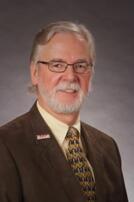09/18/2013
September President's Message
 ‘Tis the Season: Six tips for residents on finding a job while staying sane
‘Tis the Season: Six tips for residents on finding a job while staying sane
The job hunting season for those finishing their 3 or 4 year stints as Emergency Medicine residents is in full swing. The security and safety of one’s residency program will soon be gone, and a real, honest-to-goodness full time job will begin. So please allow me the opportunity afforded by the bully pulpit of the President’s Column to offer some words of advice to the residents in their final year of the program.
Let me begin by telling you why this column came about. I was speaking with a couple of 3rd year residents and their spouses the other evening. These residents were in allopathic residencies, which meant they were in their final year of residency. When the subject came up as to what they were looking for in their first job, they were all in agreement that the most important thing was to keep their life priorities in order, namely, God, Family, and then job. I was delighted to hear of their desire to keep a balance in their lives and to keep their priorities in order. All too often we hear the three most important things in a job hunt are location, location, location…or money, money, money…or whatever. How refreshing to hear these young families not putting location or money at the top of the list, but rather their spiritual and family wellbeing first, followed by “the job” and its attendant benefits.
So that’s my first piece of advice: never lose sight of your priorities and of the need for balance. Medicine can become a terrible mistress…but only if you let it.
Thought #2? Find your niche. Develop a skill set in some aspect of emergency medicine and establish yourself as the go-to guy or gal. Become the education guru…or the reimbursement king…or the customer service excellence champion…or the scheduling wizard…or the sultan of any number of crucial skills needed at any Emergency Department. Find some aspect of medicine that really floats your boat, and then hone your skills in that arena. Before you know it, you’re the one people are looking towards in that realm.
Thought #3: GET INVOLVED. This is not just a pitch for ACEP (although I do think it’s critically important for people to become involved in their professional organizations), but rather a pitch for involvement in many different venues. Get involved in your community’s education system. Or one of the many service organizations in your community (following in my dad’s footsteps, mine is Rotary). Or volunteer in a homeless shelter. The list goes on. Any community depends on its members contributing, especially the community’s leaders. And oh, by the way; yes, as a physician, you are one of the de facto community leaders.
Give back…that is thought #4. To those whom much is given, much is expected. We’re incredibly fortunate to have been given the opportunity to pursue a career in medicine and serve as physicians and leaders in our society.
Thought #5: Never lose sight of the fact that emergency medicine is a team game. While the doctor is considered the captain of the ship, there’s no question he or she would be dead in the water without the rest of the team. One of my favorite stories is the one where a college professor is writing a final exam and includes a bonus question: “What is the name of the lady who cleans this classroom every evening?” It’s very easy to apply that story to the Emergency Department. If the rooms aren’t cleaned and the beds turned over, your ED comes to a halt.
Thought #6: Always remember, for most people, coming to the Emergency Department is a sentinel event in their lives. For you, it’s routine (until you come in as a patient, that is). Never forget that. Enough said.
Allow me to finish with a word about customer service, a term that to this day doesn’t flow into my brain easily, in spite of hearing the term hourly for many years. I hope I never lose sight of the fact my patients are—at the end of the day—people seeking my help. But that’s not why I bring this up. There are three very basic reasons why I think patient service is critical: good service helps the patient, makes my job easier, and makes me a better doctor. The more measureable results of good patient service such as improved reimbursements, better “scores”, and increased foot traffic are simply the result of good service. While these “objective” measures may put more dollars in your pocket, it’s the unquantifiable, the immeasurable results of basic patient interaction that put the smile on your face and provide the intrinsic rewards.
As always, I’d enjoy the opportunity to meet or speak with any of you. You can email me at jgm3@sbcglobal.net or call me at 937 470-0770.